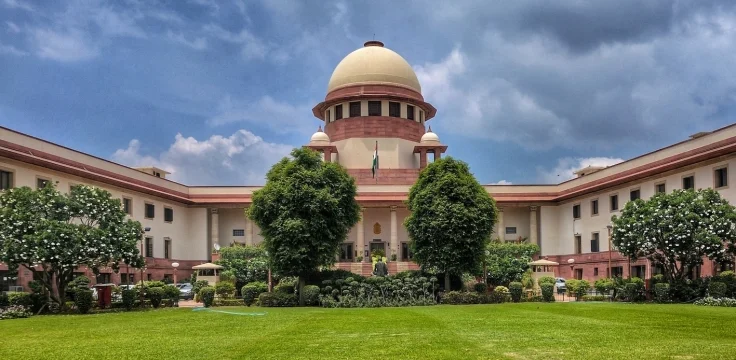Table of Contents
Introduction: Judiciary of India
The judiciary of India is a vital pillar of the country’s democratic framework, responsible for interpreting and upholding the Constitution, ensuring justice, and maintaining the rule of law.
It operates independently from the executive and legislative branches of government, which is crucial for maintaining checks and balances within the system. The Indian judiciary is structured hierarchically, comprising various levels of courts, each with distinct roles and responsibilities.
Articles at a Glance: Chapter IV The Union Judiciary
- Establishment and constitution of the Supreme Court.
124A. National Judicial Appointments Commission.
124B. Functions of Commission.
124C. Power of Parliament to make law. - Salaries, etc., of Judges.
- Appointment of acting Chief Justice.
- Appointment of ad hoc Judges.
- Attendance of retired Judges at sittings of the Supreme Court.
- Supreme Court to be a court of record.
- Seat of Supreme Court.
- Original jurisdiction of the Supreme Court.
[131A. Exclusive jurisdiction of the Supreme Court in regard to questions
as to constitutional validity of Central laws.Omitted.] - Appellate jurisdiction of the Supreme Court in appeals from
High Courts in certain cases. - Appellate jurisdiction of the Supreme Court in appeals from
High Courts in regard to civil matters. - Appellate jurisdiction of the Supreme Court in regard to criminal
matters. 134A. Certificate for appeal to the Supreme Court. - Jurisdiction and powers of the Federal Court under existing law
to be exercisable by the Supreme Court. - Special leave to appeal by the Supreme Court.
- Review of judgments or orders by the Supreme Court.
- Enlargement of the jurisdiction of the Supreme Court.
- Conferment on the Supreme Court of powers to issue certain
writs.
139A. Transfer of certain cases. - Ancillary powers of the Supreme Court.
- Law declared by Supreme Court to be binding on all courts.
- Enforcement of decrees and orders of the Supreme Court and
orders as to discovery, etc. - Power of the President to consult the Supreme Court.
- Civil and judicial authorities to act in aid of the Supreme
Court.
[144A. Special provisions as to disposal of questions relating to
constitutional validity of laws.Omitted.] - Rules of Court, etc.
- Officers and servants and the expenses of the Supreme Court.
- Interpretation.

